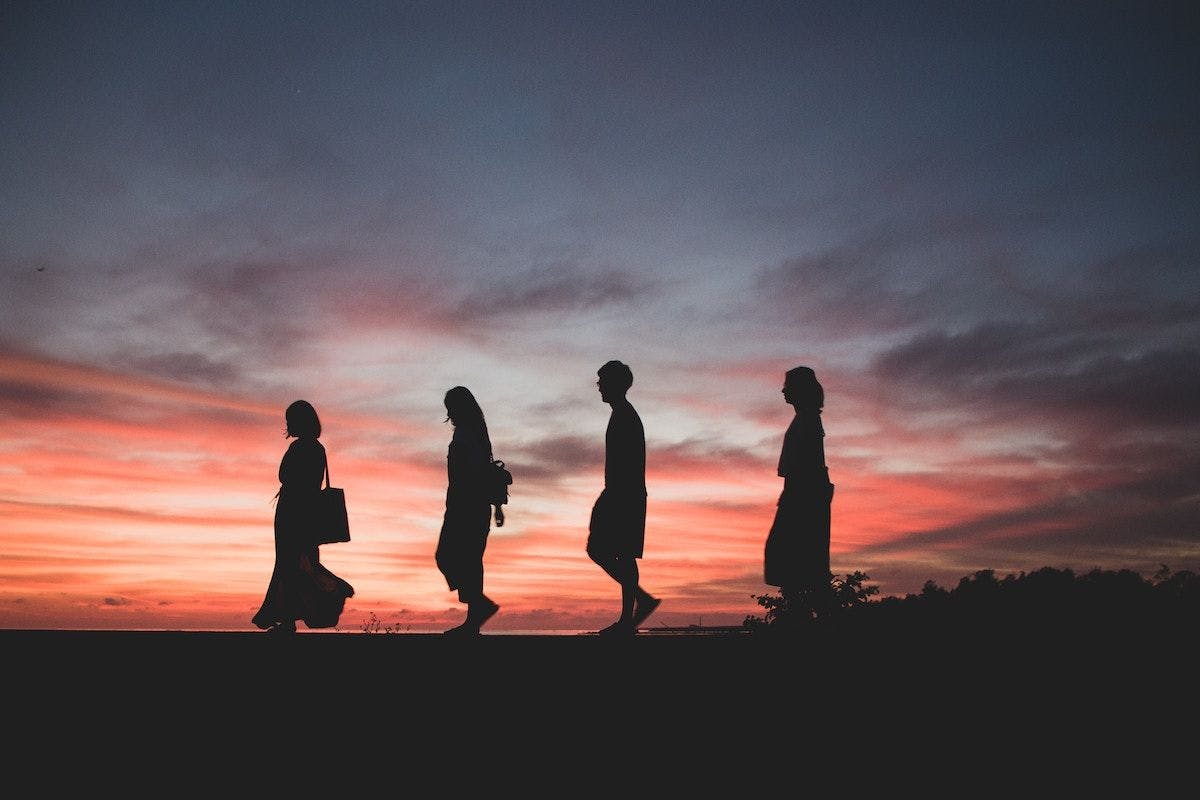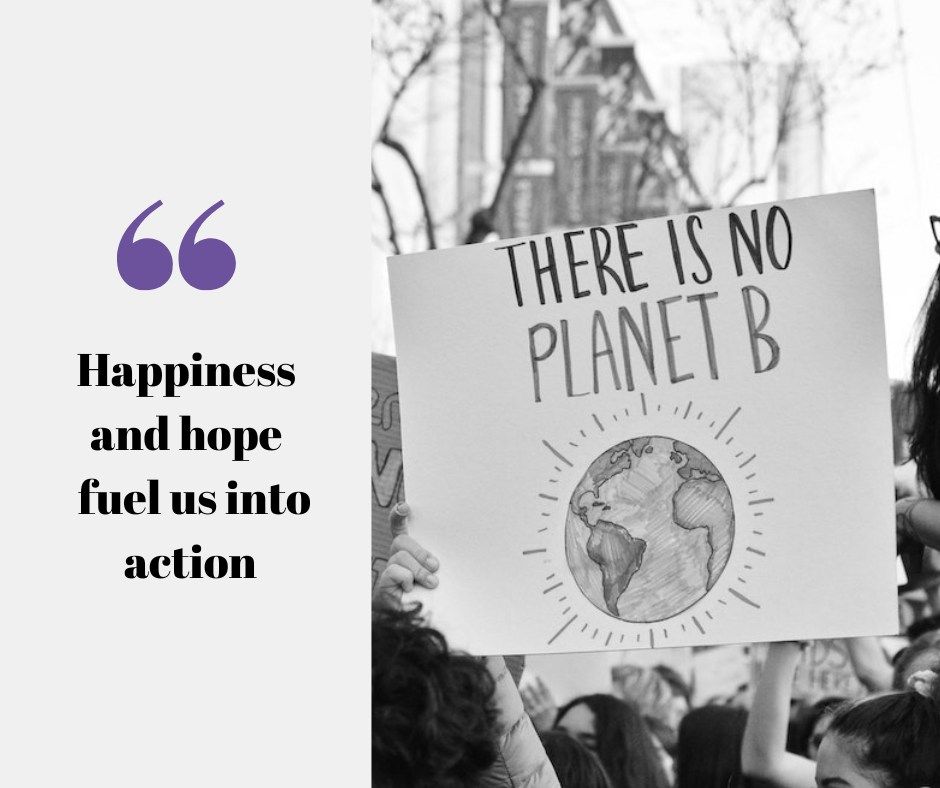
Four people who fight for justice share how they deal with compassion fatigue, exploring the value of rest and resistance in an era of 24-hour news
Binding us together and stirring us to action in times of unrest, compassion is not only vital to human connection, but also acts as a key motivator when it comes to making the world a better place.
While our minds, however, are flooded with an endless stream of world news, is it possible we’re becoming increasingly desensitised to the issues hitting the headlines?
Over the past few years, in fact, there’s been no shortage of causes to care for. And as cycles of global injustice continue, it’s only inevitable that we’ll be left wondering whether the world requires more compassion than we can muster up and offer.
According to psychiatrist, educator and co-founder of the International Society for Traumatic Stress Studies, Dr Frank Ochberg, there’s a name to describe this feeling of weariness.
“With a similar set of symptoms to secondary traumatic stress disorder (STSD), compassion fatigue is when helping begins to hurt – a pattern of tiredness and emotional depletion from too much caring and too little self-caring,” he explains.
Dr Ochberg is the editor of the first text on the treatment of post-traumatic stress disorder (PTSD), and has been a pioneer and leading authority in trauma science since the 1960s. He believes that, over time, our ability to feel and care for others can become eroded through overuse of our skills of compassion.
On top of fatigue, he says, you might also experience a level of grief. However, this doesn’t mean that you’re not a kind or deeply committed person. “Unfortunately,” Dr Ochberg adds, “you’ve just run out of energy.”

Fighting fatigue
Common among healthcare professionals on the frontlines, such as nurses, doctors, and aid workers, compassion fatigue can also be experienced by those providing various forms of empathetic support.
After emerging as a concept in healthcare, compassion fatigue slowly began to appear in the field of media, referring to the idea that overexposure to negative news reports and unsettling images could cause the public to reject rather than respond to information.
Put simply, sometimes, the cost of caring can be high. So, how can we combat compassion fatigue?
“We need to help one another stay active and hopeful,” says Dr Ochberg.
And one of the greatest defences against compassion fatigue, he shares, is joy.
“Laughter is infectious,” he says, “And the minute you laugh with someone, you fight compassion fatigue and burnout.”
Dr Ochberg also emphasises the value of rest, healthy sleep habits, kindness, and a sense of gratitude for the gift of life.
Rest and resistance
Here, drawing on their own personal experiences, four people who fight for justice explain how they combat compassion fatigue and remain grounded, resilient, and hopeful in the face of injustice.
This panel of change-makers includes Charlie Blythe, European regional director of anti-human trafficking organisation, A21; Jo Becker, climate justice activist and co-host of ‘The Yikes Podcast’; Ruth MacGilp, sustainable fashion campaigner and Jess Mally, anti-racism and social change educator.
Have you ever experienced compassion fatigue and, if so, how did you overcome it?
Ruth MacGilp:
Absolutely. During particularly stressful periods at work or in the wider world, I often begin to feel apathy towards fighting for better. But I get the drive back when I connect with others who feel safe enough to share similar feelings, and realise that while the motivation ebbs and flows, this is a long-term journey, and it’s OK not to feel 100% all the time.
Jess Mally:
Almost every day. Something to be mindful of, however, is the privilege many of us have as a result of socio-economic background and where we live in the world. For example, for a single mother fleeing a war-torn country with three children, giving up is not an option. By saying, ‘This is too much,’ or ‘I don’t want to deal with this,’ when watching the news, we are exercising a level of privilege. Suffering can’t be compared, and this doesn’t mean we should burn ourselves out or become overwhelmed. Rather, we should think of rest as a positive responsibility. It’s not only for us. Instead, it’s a tool to help us keep going.
Compassion is key when it comes to making the world a fairer place. However, it’s easy to feel overwhelmed by the weight of world issues.

Why do you think it’s important to pursue rest, even in the face of injustice?
Jo Becker:
Practising rest can be a catalysing force for change. We often think that by burning ourselves out, world issues will be solved. Though when we look at the long history of the fight for liberation, change isn’t something that happens overnight. A lot of people find it hard to rest, because a delay in action will not stop suffering or oppression. There’s a lot on our shoulders, so we do need more people actively pursuing change. Unrest, however, creates tension.
Ruth MacGilp:
Rest can be revolutionary in a society that values productivity, and efficiency above all else. But rest and self-care are easier said than done, as for me personally, ambition to do ‘more’ has always been an important part of who I am and my values. It’s a difficult balance to strike between burning out, and taking the necessary time to rest and reflect.
Jess Mally:
When we rest, we can be our fullest and most authentic selves, thus contributing to the better future we’re hoping to create. It’s the slowing down that reminds us of who we are, what we’re part of, and how we’re all connected. Practically speaking, as an advocate, I need to keep myself healthy in order to make a difference in the world. If I burn out, I can’t keep doing what I’m doing. Rest and reflection are important to model.

What motivates you to keep fighting for the causes you care most about?
Charlie Blythe:
I bring it back to the one. You see, it’s individuals that make up the huge statistics we hear and read about in the news. Real people and real human beings just like you and me. Behind those statistics is someone’s mother, father, sister, brother, son, or daughter. I have the capacity to help, and even if that’s just one person, then that’s significant. That’s making a difference. I know I can’t help everyone, but I can help someone, and that’s what keeps me motivated, knowing that the part I play could change someone’s life.
How can we find a healthy balance of making a positive change without burning out?
Jess Mally:
I think it’s worth noting that there’s a difference between being informed and merely consuming. We can be educated and informed about an issue without consuming every news notification and update. To find a healthy balance, I’d say practise media literacy, and take time to read a variety of trusted news outlets to understand what’s really happening in the world. Explore subject matters on a deeper level than headline by headline.
Charlie Blythe:
We’re constantly seeing injustice and heartache on our screens and in the news. So, it can be easy to think that nothing good exists, but the reality is, there are good things happening, too. There is much to celebrate and there are beautiful things to find happiness in. If you only ever focus on the pain of injustice, then you’re going to inevitably end up feeling overwhelmed and defeated. Those who make the biggest difference in the world are those who are filled with hope and empowerment. While it’s important to know about the issues and events happening around the world, it’s just as important to actively seek out the good news – the wins, the progress, and the beauty. Happiness and hope fuel us into action.

